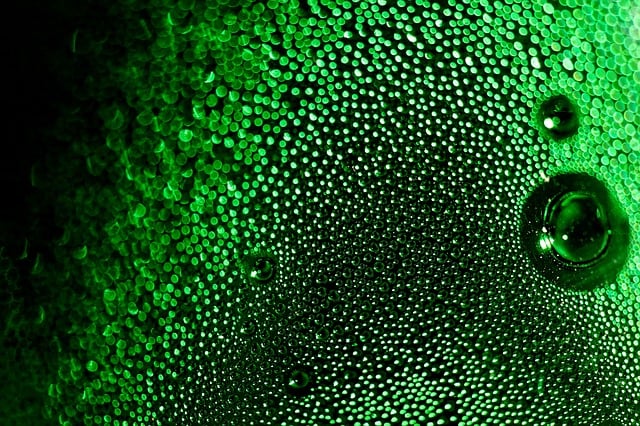
Matcha Caffeine: Calm Energy Without the Crash | Zenergy Tea
Share
Summary
Matcha has about 34 mg of caffeine per gram, roughly half the strength of espresso. But thanks to L-theanine, it releases slowly — offering hours of calm energy without the crash.
Curious about your own cup? You can estimate it instantly with our Matcha Caffeine Calculator.
Matcha Caffeine: Calm Energy Without the Crash
For years, I started every morning with coffee — the darker the roast, the stronger the comfort.
It was part ritual, part survival.
But somewhere along the way, I realized the drink that woke me up was also wearing me down.
The crash came earlier, the focus faded faster.
So I tried something that made no sense at the time: I switched to matcha, a green tea that looked too calm to keep me awake.
It turned out to be the most energy-efficient decision I’ve ever made.
At first, I thought it was placebo.
But the more I compared coffee and matcha, the more I saw a pattern.
It wasn’t that matcha had less caffeine — it was that its caffeine behaved differently.
That curiosity led me to measure, research, and eventually build a small matcha caffeine calculator to understand what was really happening in my cup.
Matcha Feels Different for a Reason
Unlike steeped green tea, matcha is made by grinding the entire leaf into a fine powder.
You drink the whole leaf — the chlorophyll, amino acids, antioxidants, and yes, all the caffeine.
That’s why matcha caffeine feels different.
It’s not weaker; it’s slower.
Matcha also contains L-theanine, an amino acid that slows caffeine absorption in the body.
The result is what researchers call calm alertness: energy that rises softly and stays steady.
It’s the same focused calm that Zen monks once relied on during long meditation sessions.

Matcha vs Coffee: Caffeine by the Numbers
Let’s settle this once and for all — matcha is not caffeine-free.
A small bowl of usucha (thin tea) can hold almost as much caffeine as espresso.
| Drink | Typical Serving | Average Caffeine (mg) | Duration |
|---|---|---|---|
| Espresso | 30 ml | 63 mg | 1–2 hrs |
| Drip Coffee | 240 ml | 95–120 mg | 2–3 hrs |
| Green Tea | 240 ml | 30–40 mg | 2 hrs |
| Matcha (2g powder) | 60–80 ml | 60–70 mg | 3–5 hrs |
So yes — matcha can be strong.
But it releases gently, thanks to theanine.
It’s energy that floats instead of spikes.
What Changes the Caffeine in Matcha
Caffeine levels in matcha aren’t fixed. They shift based on nature and preparation.
Cultivar — Yabukita, Okumidori, and Samidori all have slightly different caffeine levels.
Harvest Season — First-flush (Ichibancha) tea has the most caffeine and nutrients.
Shading Time — Longer shading increases both caffeine and L-theanine.
Preparation — Two grams of matcha (one teaspoon) ≈ 68 mg caffeine. A thicker koicha or latte can reach 100 mg.
Every gram matters. Even half a gram can change how you feel.
What Science Says About Matcha Caffeine
Modern studies confirm what Japanese tea masters have known for centuries:
the body processes matcha caffeine differently.
Matcha caffeine is absorbed 30–40% slower than coffee (Food Research International).
The L-theanine + caffeine combination boosts attention while easing stress.
Shaded matcha (kabuse or chagusaba) consistently contains more caffeine and theanine than unshaded teas.
This is why high-grade matcha from regions like Shizuoka or Uji feels powerful yet balanced.

Does Matcha Keep You Awake?
Yes — but gently.
Coffee hits fast and fades fast. Matcha rises slower and stays steady for hours.
The combination of caffeine and L-theanine promotes alpha brain waves — the same state linked to focus and creativity.
Most people feel alert for 3–5 hours without anxiety or crash.
If you’re caffeine-sensitive, start with one gram of matcha (~34 mg caffeine).
That’s often enough to feel lifted yet calm.
A Smarter Way to Measure
Because caffeine varies by cultivar and serving size, it helps to measure consciously.
That’s why we created a free Matcha Caffeine Calculator — to help you balance energy and calm in every cup.
You can input:
grams of matcha used,
water or milk volume,
drink type (usucha, koicha, or latte).
The calculator estimates caffeine and L-theanine levels instantly — not for control, but for awareness.
Awareness in a Cup
Coffee used to wake me up; matcha helps me stay awake differently.
It gives energy that listens instead of shouts.
Knowing what’s in your bowl makes every sip intentional.
Whether you measure with a spoon or use a calculator, awareness itself becomes the ritual.
Summary
Matcha contains caffeine — but not like coffee.
It delivers calm energy, not chaos.
A standard serving of 2g matcha has around 60–70 mg of caffeine, releasing slowly for sustained focus.
If you want to find your perfect balance, use our Matcha Caffeine Calculator to estimate your bowl’s energy profile.

Aileen Gong is a food creator, sommelier, and graduate of the School of the Art Institute of Chicago.
She shares quiet, beautiful recipes that celebrate simple rituals and mindful flavors.
She grows blueberries in pots, hand-whisks her matcha, and believes every drink can be a small moment of peace.
Does matcha have caffeine?
Yes. Matcha is made from whole tea leaves and naturally contains caffeine — about 34 mg per gram, or 68 mg per 2g serving.
Is matcha stronger than coffee?
Not in total caffeine, but its effect lasts longer. The L-theanine in matcha slows caffeine absorption, creating calm focus instead of jittery spikes.
How does matcha compare to green tea?
Matcha has roughly 3× more caffeine than steeped green tea since you consume the entire leaf.
Can I drink matcha while pregnant?
Yes, in moderation. Health experts suggest keeping total caffeine intake below 200 mg/day.
Does matcha keep you awake?
It can, but gently. The balance of caffeine and L-theanine keeps you alert for hours without the crash.
